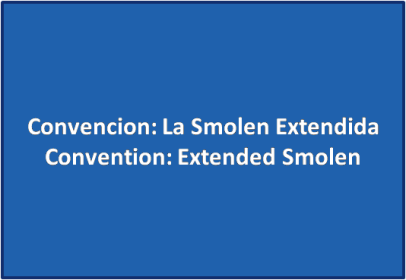Source: Aussie Youth Bridge Bulletin
The Smolen Convention show 5-4 Majors with game-forcing values opposite a 1NT opening:
| 1NT | 2 |
|
| 2 |
3 |
4 |
| 3 |
4 |
We can now extend this even further. Instead of 3![]() or 3
or 3![]() Smolen, what does it mean if responder jumps to 4
Smolen, what does it mean if responder jumps to 4![]() , 4
, 4![]() , 4
, 4![]() or 4
or 4![]() ?
?
Both 4![]() and 4
and 4![]() look like they are to play, and because they bypass 3NT, they should therefore imply a six-card major. Since responder went via 2
look like they are to play, and because they bypass 3NT, they should therefore imply a six-card major. Since responder went via 2![]() Stayman, this must imply that responder is 6-4 in the majors. In other words, 4
Stayman, this must imply that responder is 6-4 in the majors. In other words, 4![]() shows 6
shows 6![]() 4
4![]() and 4
and 4![]() shows 6
shows 6![]() 4
4![]() .
.
Similarly, 4![]() and 4
and 4![]() can be used as a delayed Texas transfer, also showing 6-4 in the majors. That is, 4
can be used as a delayed Texas transfer, also showing 6-4 in the majors. That is, 4![]() shows 6
shows 6![]() 4
4![]() and 4
and 4![]() shows 6
shows 6![]() 4
4![]() (the lower minor suit shows the longer lower major suit). Since there is an overlap between 4
(the lower minor suit shows the longer lower major suit). Since there is an overlap between 4![]() /4
/4![]() and 4
and 4![]() /4
/4![]() you can now split your ranges.
you can now split your ranges.
| 1NT | 2 |
|
| 2 |
3 |
4 |
| 3 |
4 |
|
| 4 |
6 |
|
| 4 |
6 |
|
| 4 |
To play | |
| 4 |
To play |
It is correct for the slam try hands to be put within the 4![]() /4
/4![]() bids, because 4
bids, because 4![]() and 4
and 4![]() both allow space for opener to make a ‘noise’ to suggest a bit of interest (e.g. the 4
both allow space for opener to make a ‘noise’ to suggest a bit of interest (e.g. the 4![]() bid allows opener to bid 4
bid allows opener to bid 4![]() ).
).
The above structure can be beneficial as it allows you to locate your 4-4 fit first, before your 6-2 or 6-3 fit, and a 4-4 fit might be able to generate additional trick(s). However, don’t forget to use your judgement. If your four-card major suit is quite weak, it might be better to play in your six-card suit (i.e. don’t bother with 2![]() to find that 4-4 fit): a weak 4-4 fit may prove to be difficult to play in when faced with a bad trump break.
to find that 4-4 fit): a weak 4-4 fit may prove to be difficult to play in when faced with a bad trump break.


